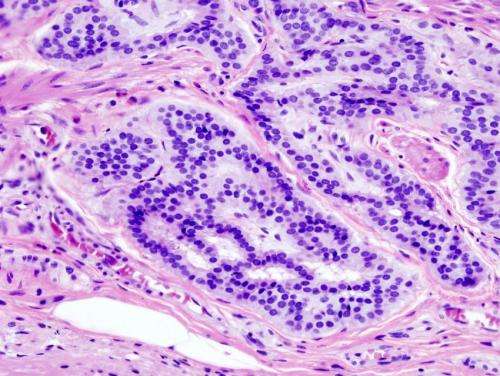New epigenetic study reveals exciting insights into colorectal cancer progression

Researchers at Nanjing University, China, found new epigenetic markers for colorectal cancer which may offer a new approach for treatment.
Epigenetic alterations leading to colorectal carcinogenesis are thought to hold great promise for the development of novel, minimally invasive molecular biomarkers.
Scientists at the State Key Laboratory of Pharmaceutical Biotechnology, School of Life Sciences, Nanjing University, China, have demonstrated that heterochromatin protein HP1γ was critical for CRC cell proliferation and could be specially regulated by miR-30a at the protein level.
"These studies have improved the chances that epigenetic biomarkers will find a place in the clinical practices of screening, early diagnosis, prognosis, therapeutic choice and recurrence surveillance for CRC patients." says Professor Quan Zhao, who is one of the principal investigators at School of Life Sciences, Nanjing University, China.
In the future Professor Zhao and his collaborators want to further investigate the role of these new markers in individual steps of invasion-metastasis cascade of CRC.
Key findings included:
- HP1γ protein levels were significantly increased in primary CRC tissues compare to adjacent non-tumor tissues. Cancer correlation analysis indicated prognostic potential. Thus, HP1γ appears to be a promising biomarker for CRC and may provide an effective target for CRC therapy.
- MiR-30a was down-regulated in CRC tissues, and exhibited a significant inverse correlation with the HP1γ protein level. Further, HP1γ could be post-transcriptionally regulated by miR-30, which suppressed colorectal cancer growth both in vitro and in vivo, suggesting that miR-30a can serve as another potential prognostic biomarker for CRC, may also have promise as therapeutics.
Their study results are published in the OnlineFirst issue of Cancer Research (September 2, 2015; DOI: 10.1158/0008-5472). Liu et al.: Heterochromatin protein HP1γ promotes colorectal cancer progression and is regulated by miR-30a
















